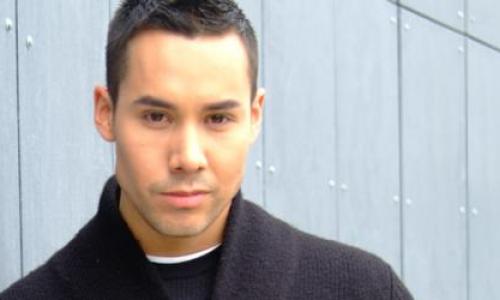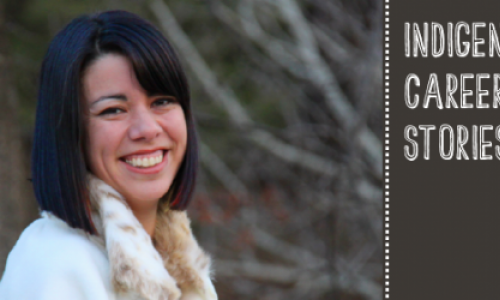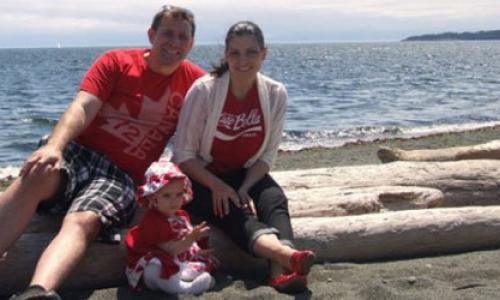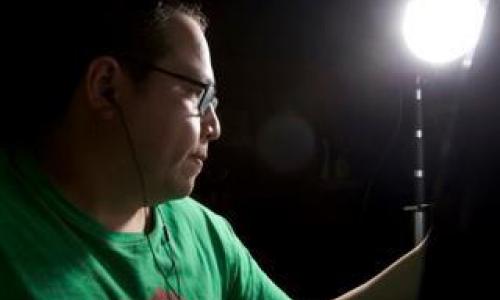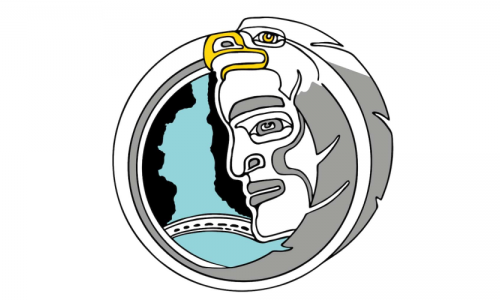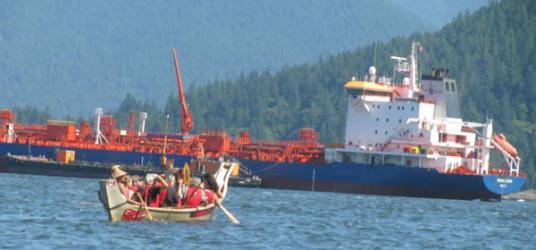
Kinder Morgan
In terms of Kinder Morgan’s relationship with The STI, it is limited. Rueben George was able to participate in a debate with KM representatives where he was able to challenge their claims that the pipeline will benefit the economy and create jobs. Mr. George noted that it will create jobs in China, not in British Columbia, and that with an average of 2.6 spills a days, the benefits are few and far between. He expressed gratitude to have had the opportunity to look KM representatives in the eyes and “call bullshit” on their claims.
As it stands now, the STI does not have any contact with Kinder Morgan. Carleen Thomas explained their reasoning behind this decision.
“What we did was, we launched a legal challenge and we went to the federal court of appeal to ask for an appeal to leave, because since Kinder Morgan’s project became a project in December, a year ago, they’ve been trying to contact, even prior that, they’ve been trying to contact TWN to talk about the impacts and what their mitigation could be and how they could address our concerns and we told them, ‘we’re not talking to you. we will only talk to the federal government.’ We sent them a couple of letters to then Minister Joe Oliver, and said, ‘Hey, you can’t delegate your responsibility to a third party, like Kinder Morgan, to talk to us about protecting our rights and title. That’s a government responsibility, not an oil company’s responsibility.’ And we said, ‘no’, so we refused any emails, phone calls, trying to get meetings with our leadership.
The other thing we launched in that legal appeal was that the National Energy Board’s process is flawed. and as you’re aware, Harper’s government changed that process, I think based on their experience with the Embridge, because Embridge has been going on for like, 6, 7 years. And they’re tired of waiting, that this process is taking so long. So, what they did with the NEB process is cut it down to be that they have to have a deal done within two years or something like that. I want to say 18 months but i’m too sure if that’s right. And so with the Canadian assessment, the Canadian Barment Assesment Act, the government had changed those too. But what the NEB didn’t see in there was, I believe its section 18, that the NEB is responsible to go out and talk with communities that consider themselves a jurisdiction. And under their definition of what a jurisdiction is, Tsleil-Waututh falls under that. So, we challenged them on that one. And there were two other reasons that we put forward as well.”
Because STI’s mandate is to stop the expansion, communication with KM has the potential to muddy the waters and blur the boundaries of STI’s position. Rather than engaging in discussions with KM, they seek out suitable methods to block the project. TWN’s position that the expansion ignores their rights to land and title demonstrates that their primary conflict is not with KM at all, but with the federal government and the Harper government’s continued violation of the rights of the First Nations groups along the pipeline. Initiating the legal challenge against the NEB is one such method to confront these issues as well as to stall the project. STI has a strong case and it would not be unreasonable to believe they may win this battle. The effects of the legal challenge are serious time delays in the projects commencement, which gives the STI more time to gather resources, strengthen relationships with allies and continue to expand public support.











